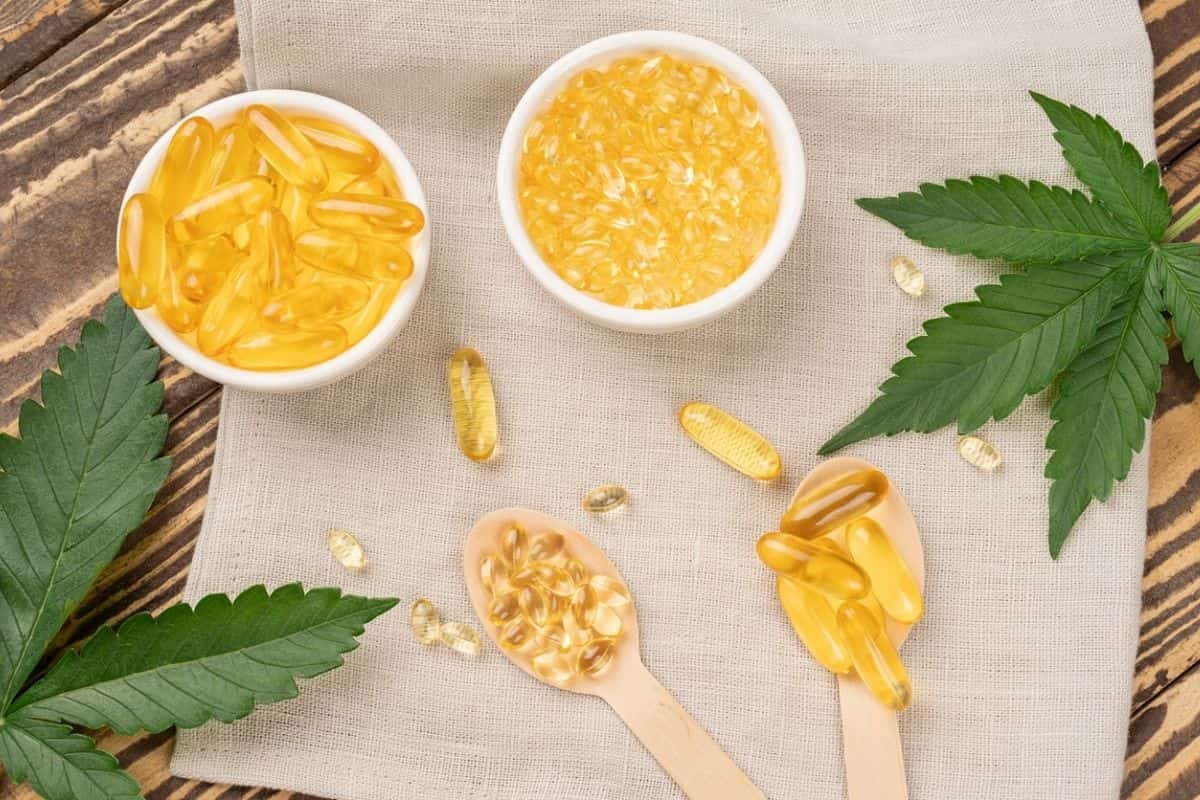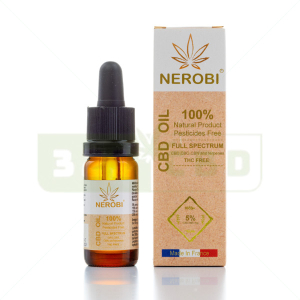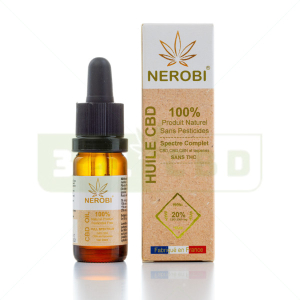Sommaire
- How do I know if I have a difficult digestion?
- Why I have digestion problems: the different causes.
- The most common symptoms of difficult digestion
- The link between our modern lifestyles and digestive disorders...
- The right reflexes to adopt
- Treatments to turn to for digestive problems
- Freedom from gastrointestinal disorders with CBD
How do I know if I have a difficult digestion?

Otherwise known as a "liver attack", indigestion occurs when you have digested something badly. It can be a spoiled product, a food you are allergic to, too much alcohol or too much food. The digestive juices, of biliary origin, whose role is to emulsify fats to facilitate their absorption by the intestine and thus digestion, then fail to keep up. In this case, one finds oneself ballsy and/or nauseous, taken by abdominal cramps and victim of vomiting and/or diarrhoea, even in some cases of fever. Long, heavy meals forcing one to remain immobile for long hours can be aggravating factors.
Why I have digestion problems: the different causes.
Generally, digestion problems are caused by external factors such as poor eating habits, overeating or ingesting unsuitable foods, excessive alcohol etc.
Some people are also susceptible toaerophagia as they swallow too much air while eating, which can cause significant discomfort as well as belching.
Also, any gastrointestinal-type disturbance, as well as any diseases affecting the health of the liver and pancreas, can impair digestion since these are actively involved in the digestion process. In addition, people with psychological problems, such as anxiety, are also more likely to have digestive problems, not to mention overweight problems or smoking and alcohol consumption, which challenge digestion, acidify the body and are highly inflammatory.
Finally, certain medications such asaspirin, acid reflux treatments (proton pump inhibitors), non-steroidal anti-inflammatory drugs (NSAIDs), antibiotics and treatments for osteoporosis or even erectile dysfunction, can increase digestive discomfort.
In addition, certain periods that disrupt a woman's hormonal balance are also conducive to this kind of discomfort This is particularly the case during pregnancy or the period, during which the digestive system is often disrupted.
However, suffering from digestive disorders can sometimes be a sign of more serious, underlying diseases, such as inflammation of the oesophagus or stomach (ulcer, gastritis etc.), gallstones, pancreatitis, gastrointestinal tumours and even cancer...
The most common symptoms of difficult digestion
Frequently, one notices that one is having trouble digesting when one has a feeling of heaviness in the stomach, which can go as far as nausea. There is also a feeling of fullness that comes on quickly when you have only eaten a little, bloating, heartburn, belching, cramps, spasms and stomach aches, and even headaches.
If the digestion problems do not last more than 48 hours, there is no cause for alarm. At that point, all you need to do is adopt a strict diet until everything is back to normal. It is only when these kinds of symptoms persist for more than six months that we can talk about functional dyspepsia.
The link between our modern lifestyles and digestive disorders...
The sedentary lifestyle, the nature of our diet, stress and lack of sleep are all factors to consider when looking for the causes of one's digestive problems. Lack of movement and physical activity slows down transit and hinders digestive comfort.By not working our stomach muscles enough, intestinal motricity is diminished, which causes, among other things, an accumulation of gas whose evacuation is slowed down.
Then, the processed diet, depleted in vitamins and nutrients do not help to keep a healthy and fast metabolism, which will digest better. Then knowing that our intestines are our third brain and as such are very sensitive to sleep deprivation and stress, it is not surprising to see that emotions are felt on the transit.
The right reflexes to adopt
After returning from a holiday, a festive meal or a gastronomic trip, it's best to adopt a special diet, to give our entire digestive system time to find its bearings. We'll focus on vegetables in large quantities, such as asparagus, fennel, celery or leeks, and drink plenty of water to eliminate.
In the evening, focus on vegetable soups. Exit the fatty croutons and cream! If you really want to, add skimmed or plant-based milk.
Eat enough at the table, don't snack between meals and banish anything that is both fatty and sweet. Your gut needs to rest...
Practise gentle physical activity as often as possible such as walking, cycling or swimming, to recover faster, activate your blood flow and get your lymph moving.
Treatments to turn to for digestive problems

Treatments offered for digestion problems act specifically on the liver, facilitating the production of bile as well as its secretion into the intestine. Some plants that have virtues along these lines are actually used in the composition of these medicines, such as fumitory, turmeric, boldo, dandelion, artichoke, rosemary and wormwood.
Go for products containing enzymes needed for digestion to support digestion and enriched with plant charcoal, which combats excess gas production.
Therefore, medicines traditionally used to overcome digestive disorders, including those of hepatobiliary origin, are either:
- Cholagogues, which support the removal of bile to the intestine;
- Choleretics, which support the secretion of bile and hepatotropes, such as arginine, legalon, betaine citrate, cantabilin, hepargitol, sulfarem, and sorbitol;
- Digestive and food enzymes(see pancrelase);
- Activated charcoal (see for carbosylan);
- Herbs such as artichoke, lemon balm, milk thistle or fumitory, which have great choleretic or cholagogic properties;
- Homeopathic medicines, such as bilinium complex No. 113, homeoregul, carominth, digestodoron, L114, billerol, choleodoron and gastrocinesin;
- From herbal medicine with Arkogélules with lemon balm, oddibil, chophytol and hepanephrol.
Freedom from gastrointestinal disorders with CBD
You can also heal your digestive system with a natural and safe alternative for your health, thanks to CBD which acts on:
- Inflammation
CBD and our gut health are closely linked as, inflammation, which is at the heart of digestive problems and illnesses in general, can be mitigated or even eradicated with cannabidiol!
CBD is both a potent and harmless molecule that reduces inflammation throughout the body, by activating certain endocannabinoid receptors. CB2 receptors then slow the release of pro-inflammatory cytokines, which are responsible for inflammation.
- Nausea
Who says intestinal disorders often says nausea and sometimes even vomiting. Well, good news because CBD has an antiemetic action, regulates the production of serotonin and acts in parallel on the anamides which in turn stimulate the antiemetic effects of CB1 receptors.
- Pain
When one has trouble digesting, pain often follows, linked to inflammation of the gastrointestinal tract. CBD is therefore a supplement of choice as it acts on both of these issues, as well as being a natural painkiller. By taking CBD regularly, you will be acting on your brain's response to pain which will be reduced.
- The motor skills of our gut
Cannabidiol can slow down muscle contractions in the digestive tract through its action on opioid receptors, but it also impacts on the neurotransmitter ACh, which it suppresses. Both have an impact on intestinal motricity.












